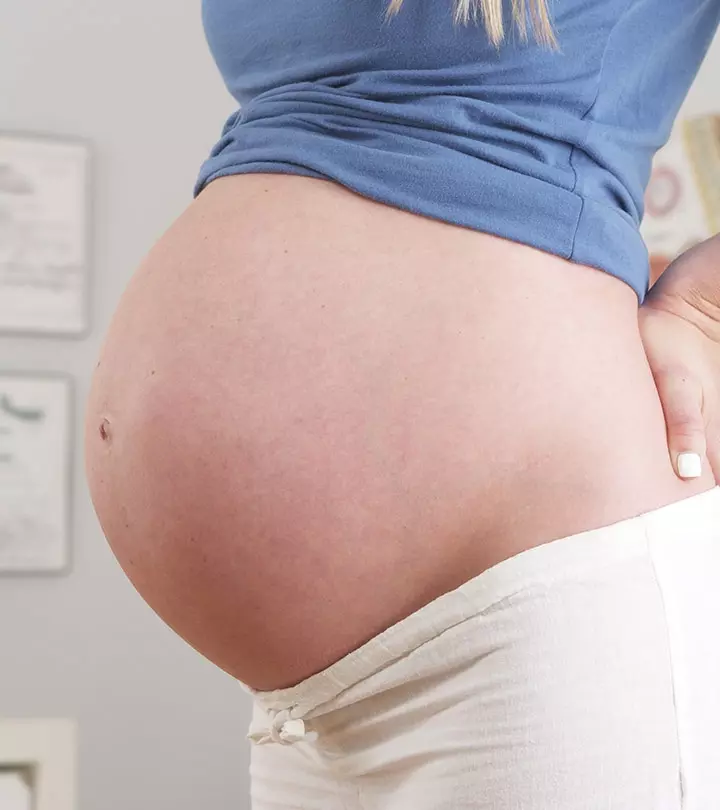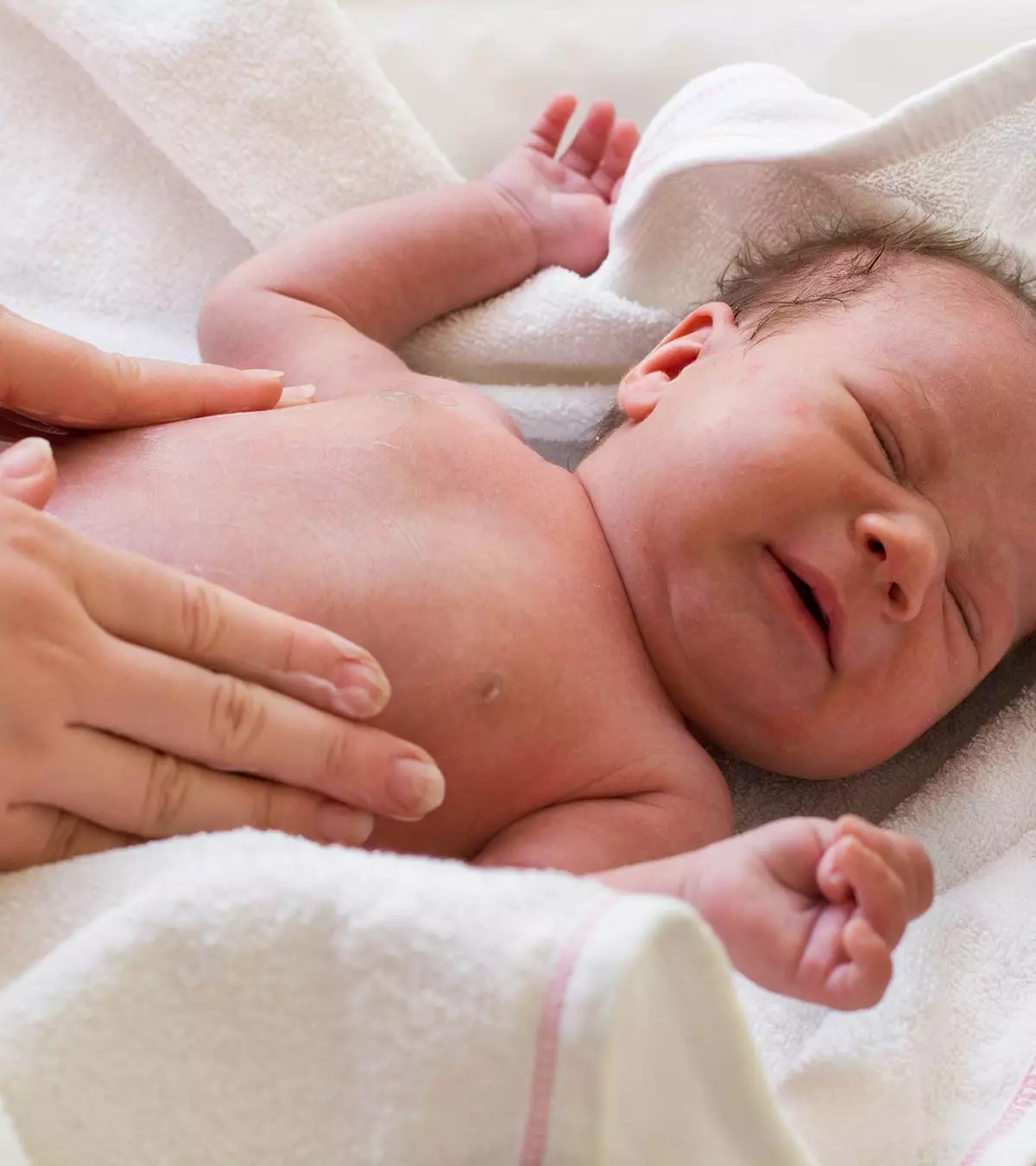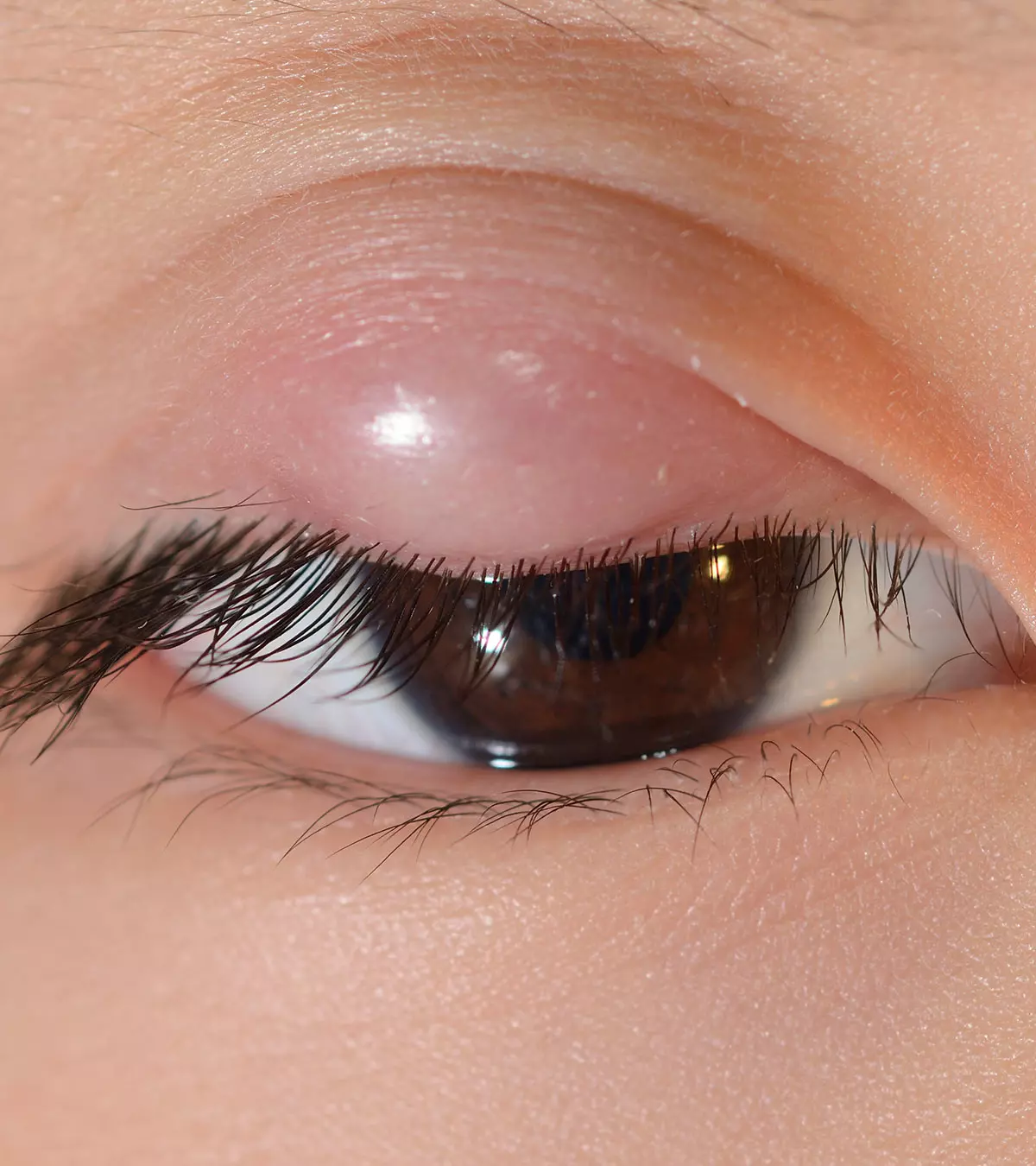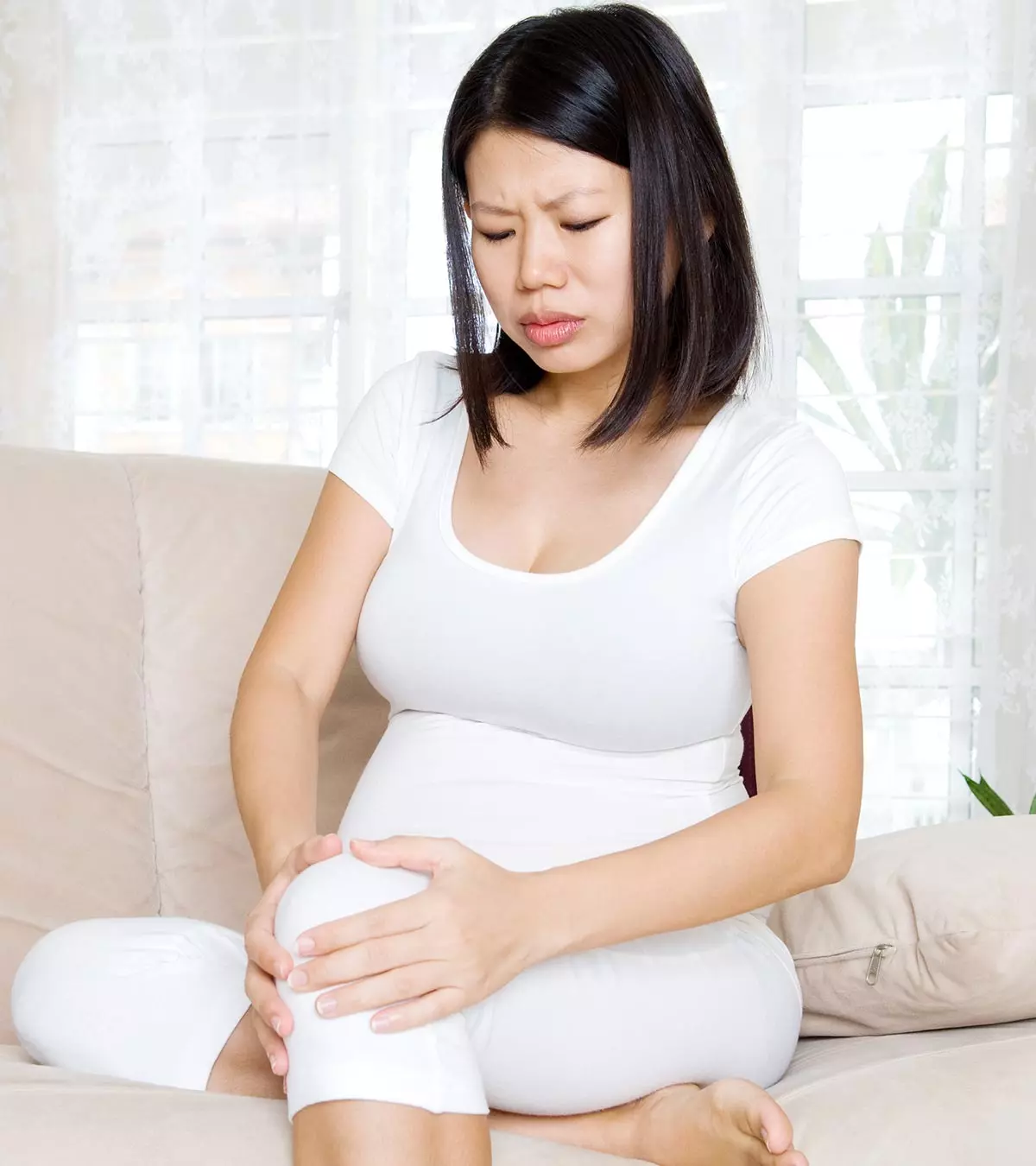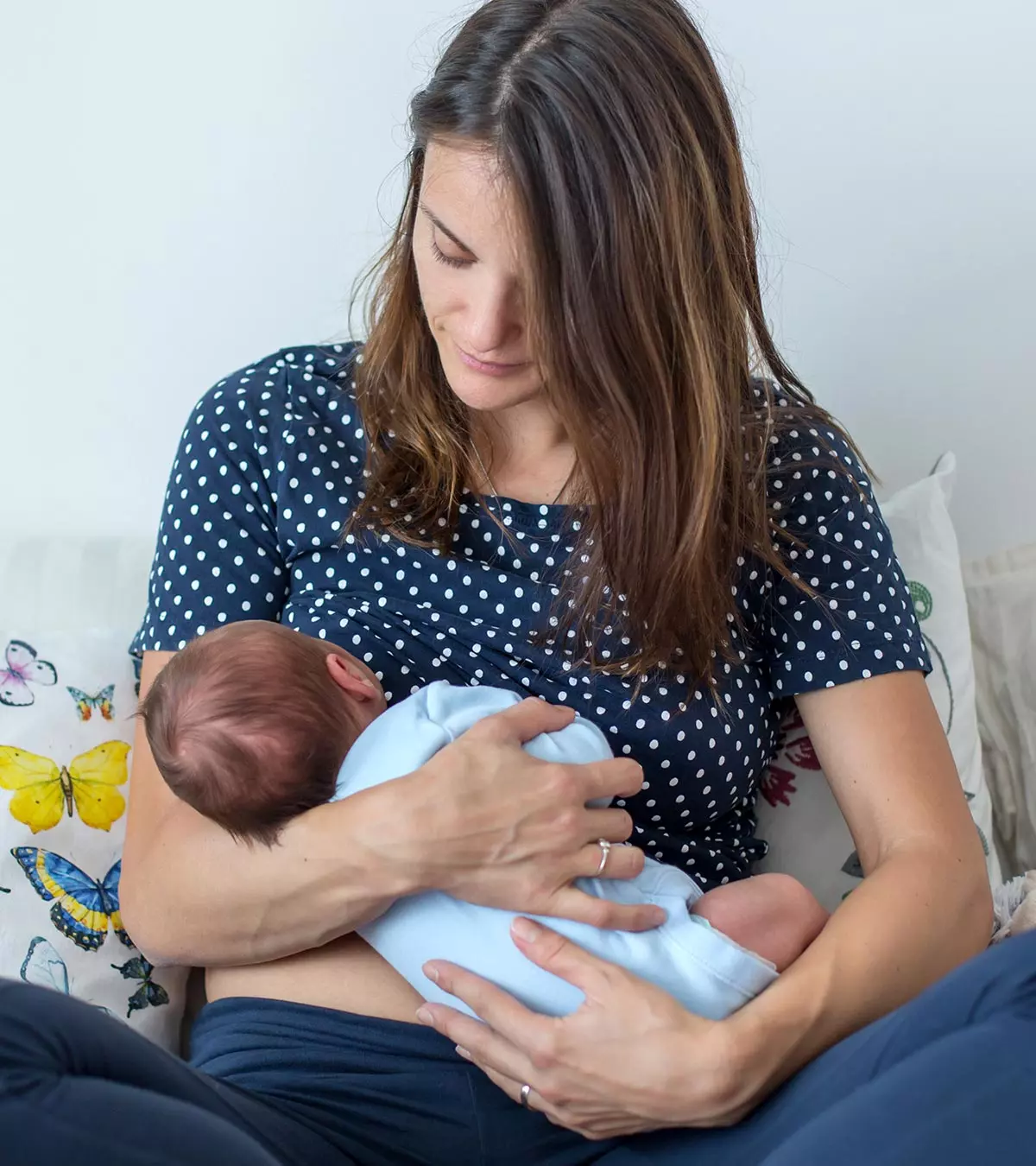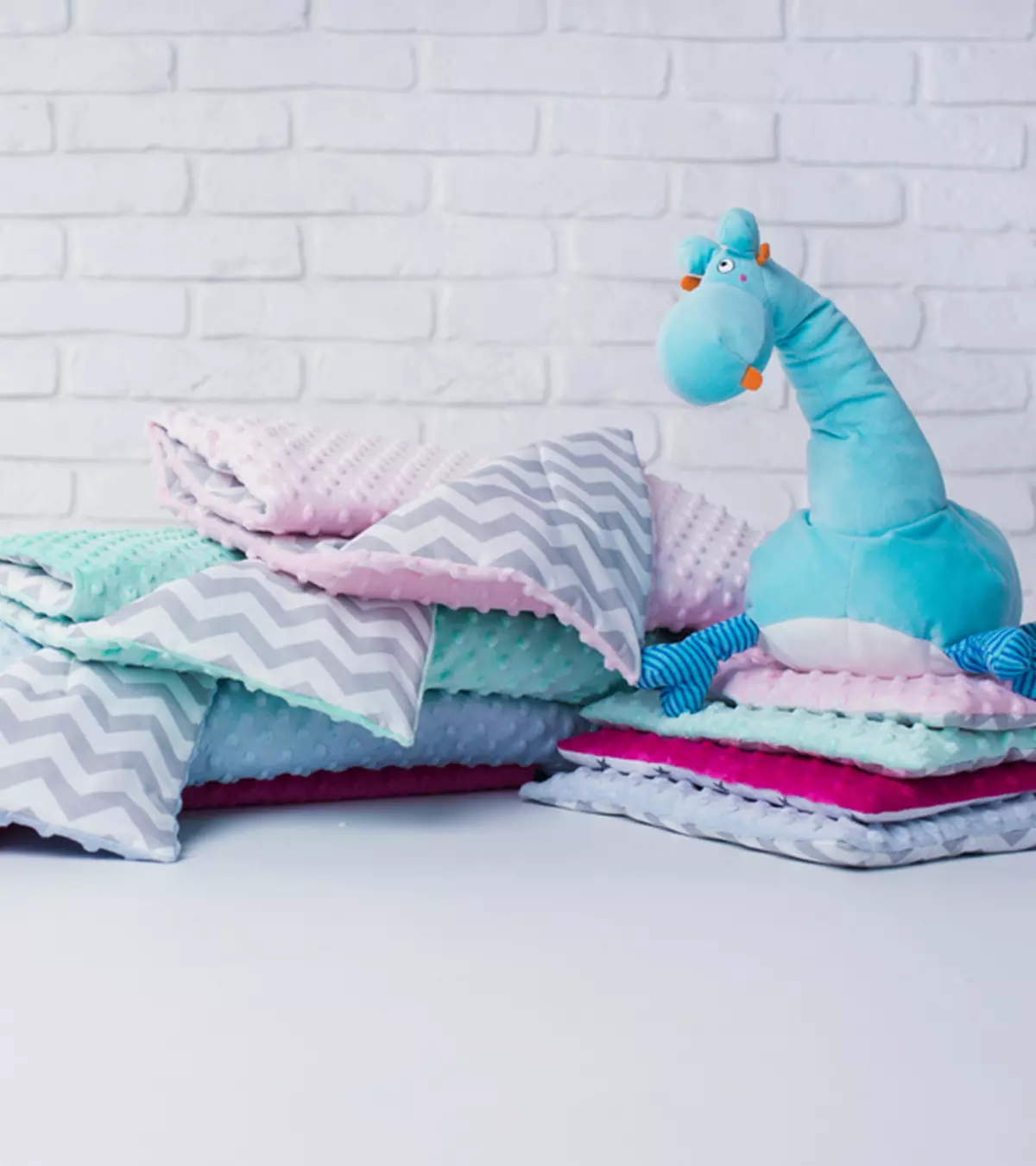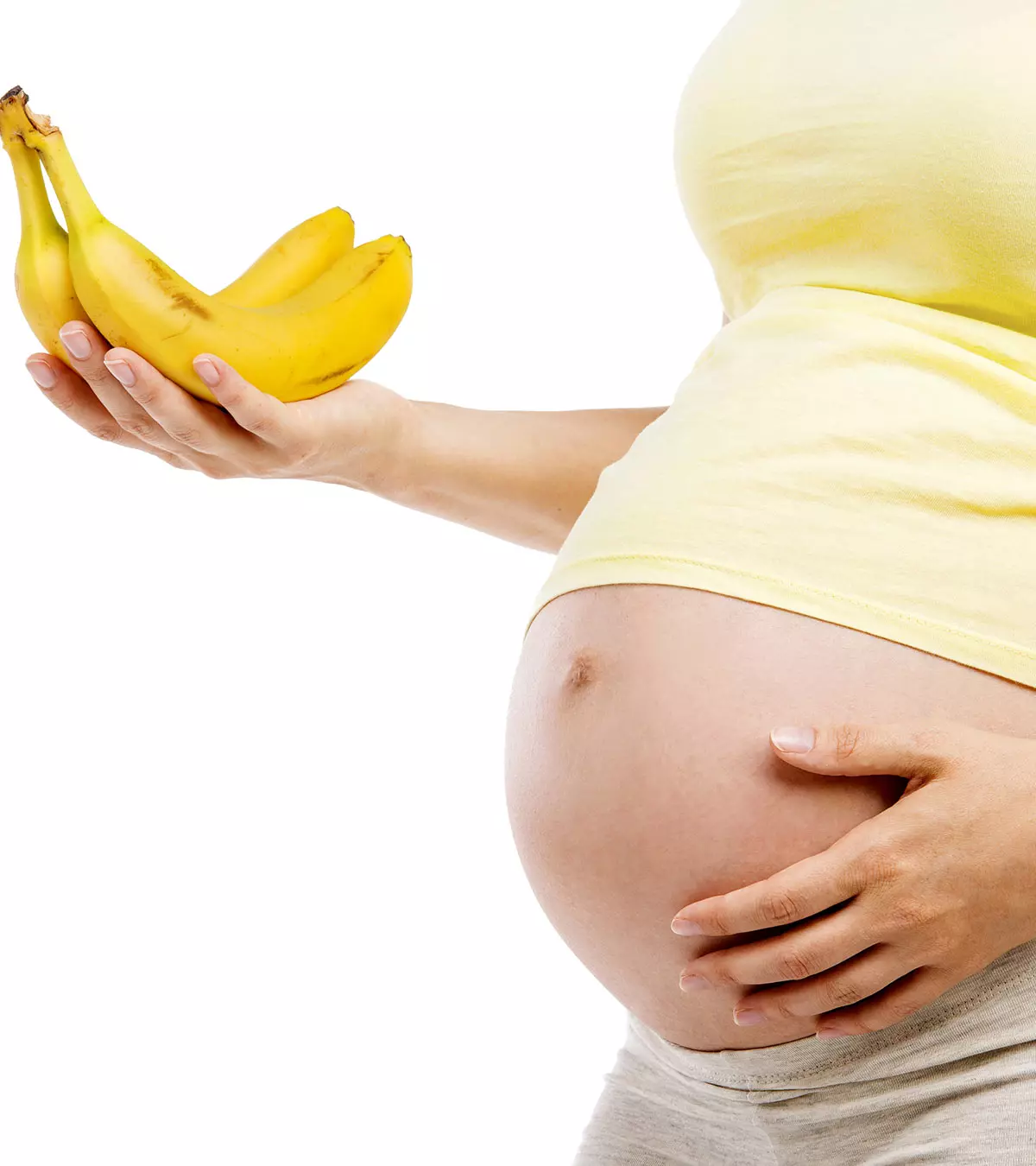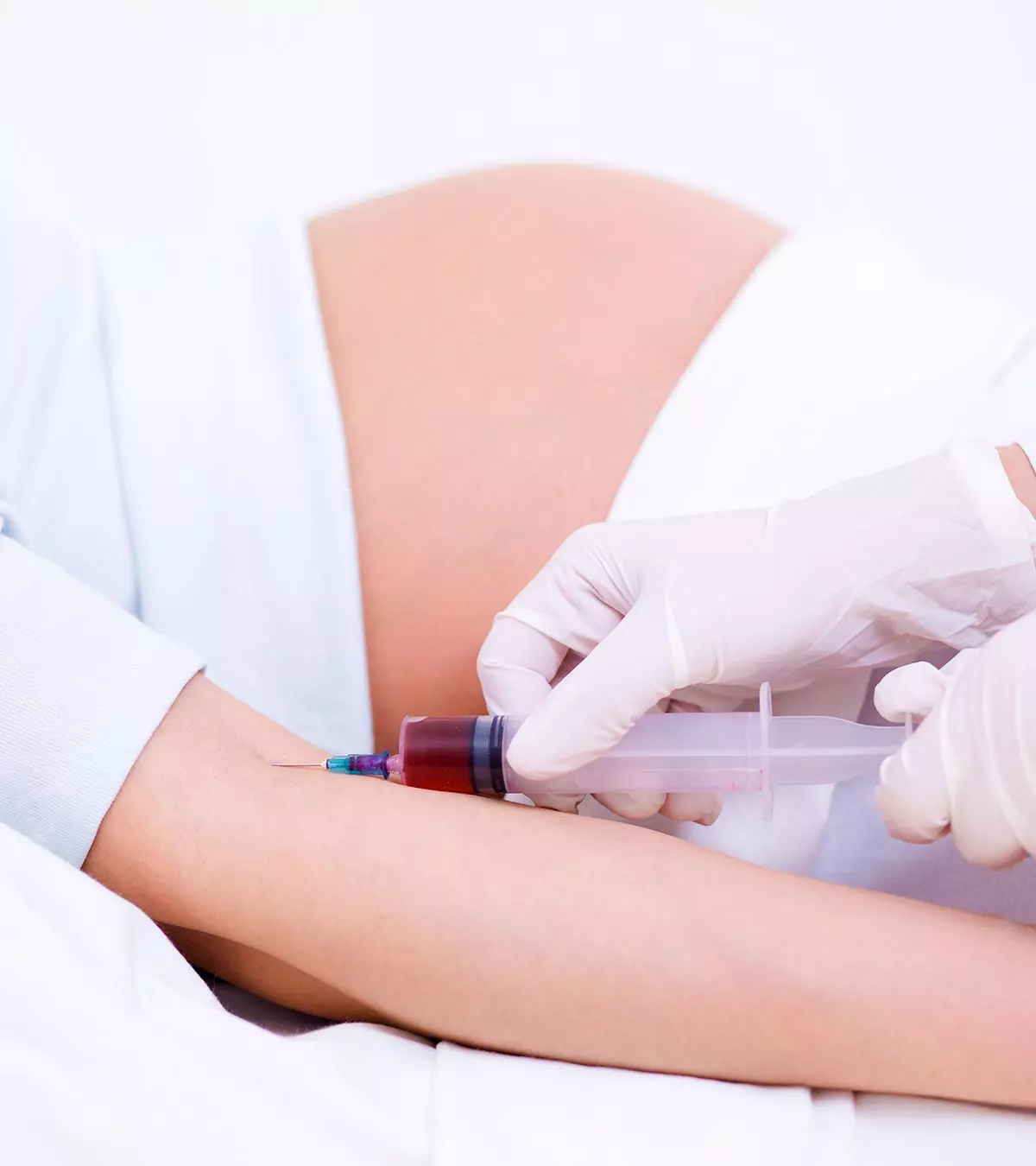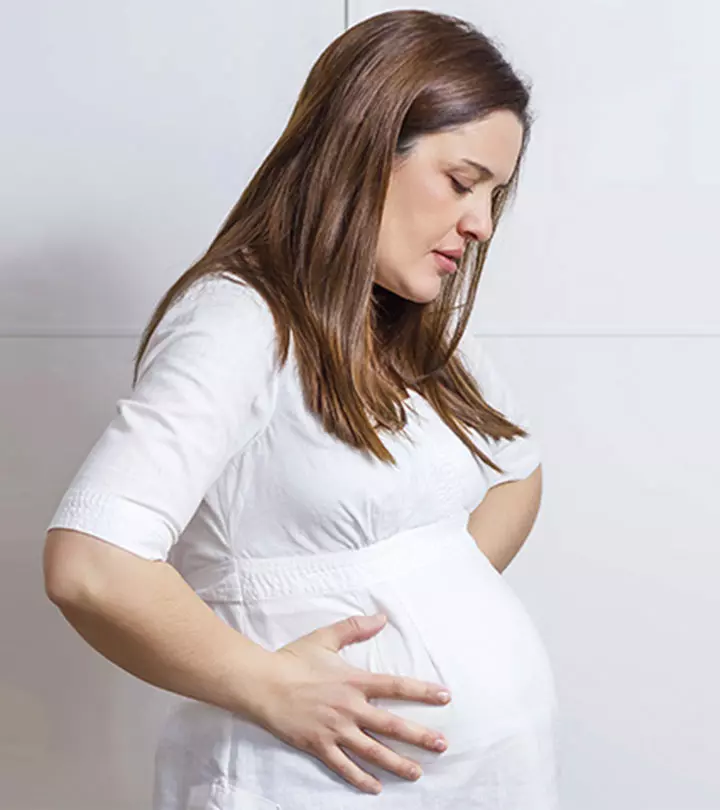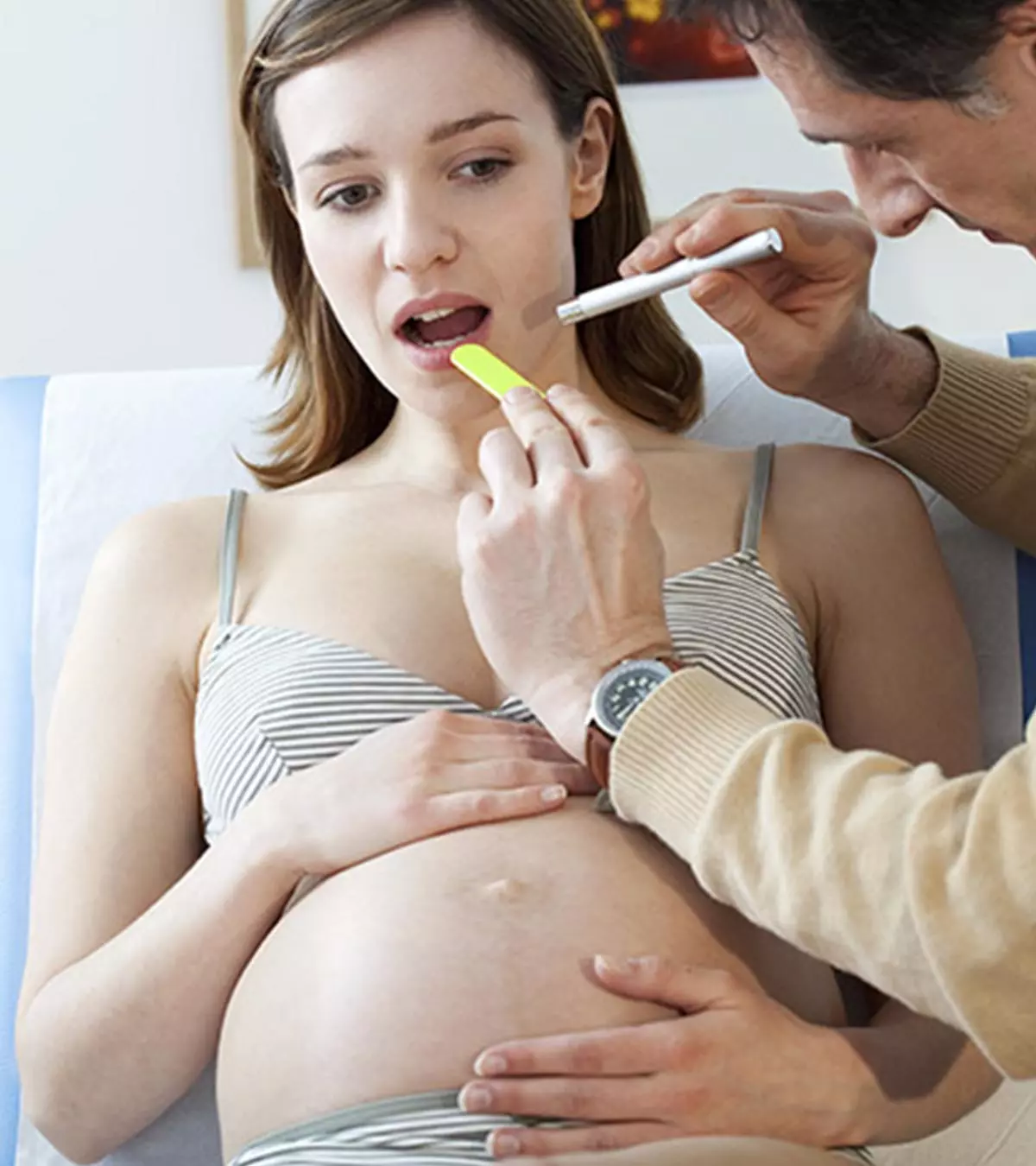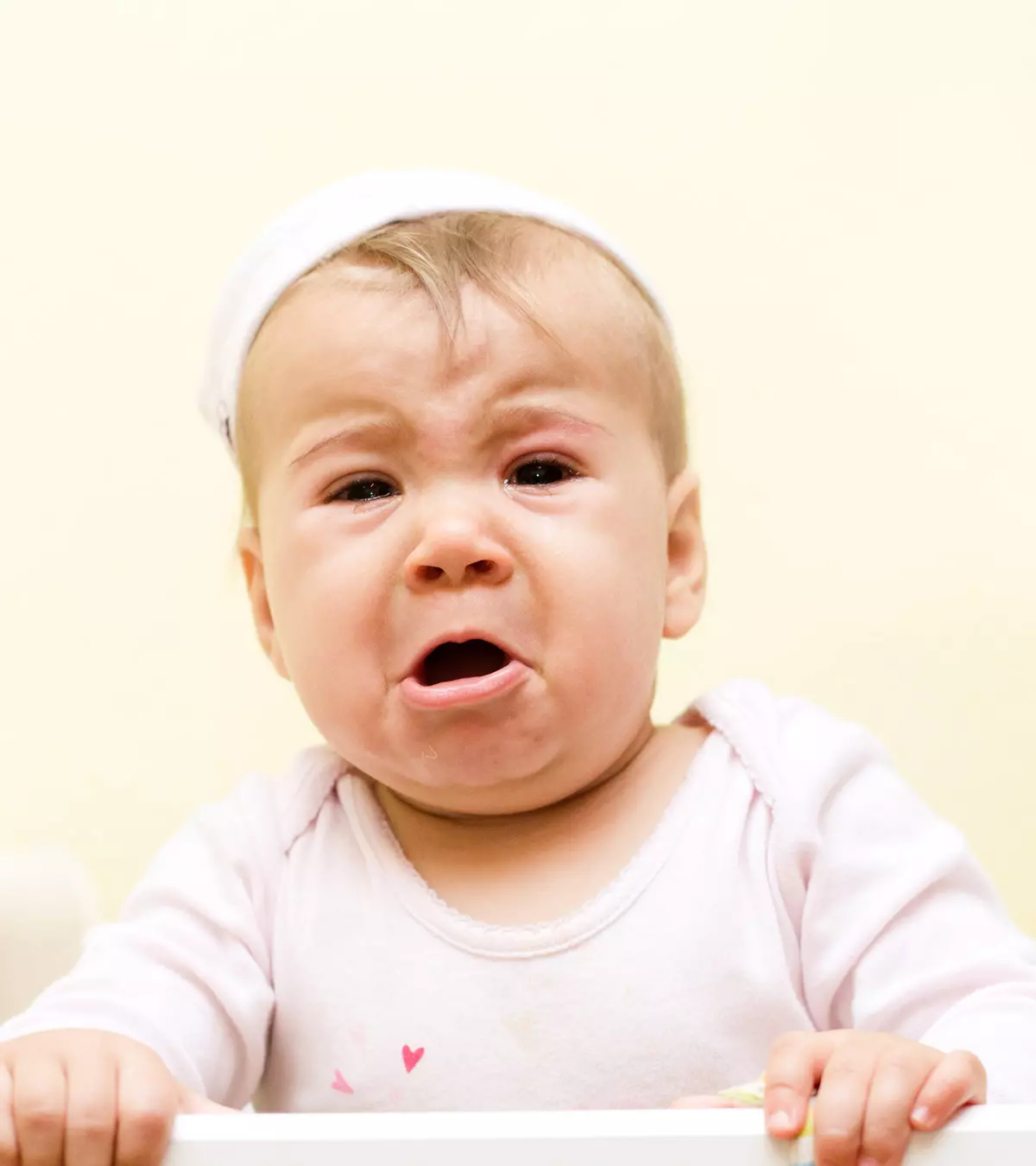
Image: Shutterstock
Stress in babies can be observed from the earliest months of life. Although we attribute stress to older children and adults, babies are more vulnerable to stress. Regular events such as bathing can also cause certain levels of stress response in babies. They can also be stressed from physical conditions such as illnesses.

Babies also respond to emotions from the environment and parents. Therefore stressful parents or the environment can also lead to stress in little ones. However, studies found that a strong bond with parents and their attention can help reduce stress hormone levels in babies (1). Read on to learn more about the causes, signs, and ways to prevent stress in infants.
Key Pointers
- Babies can experience stress from routine activities, physical ailments, and environmental emotions.
- Chronic stress in babies can lead to delayed brain development, behavioral issues, and diseases associated with stress.
- Signs of stress in babies include frequent screaming, disrupted sleep and eating patterns, lack of emotion, and difficulty adjusting to new situations.
- Preventing stress in babies can be achieved by providing a safe and secure environment, fostering a close relationship with parents, and addressing any illnesses or negative emotions.
Illustration: Unexpected Causes And Signs Of Stress In Babies
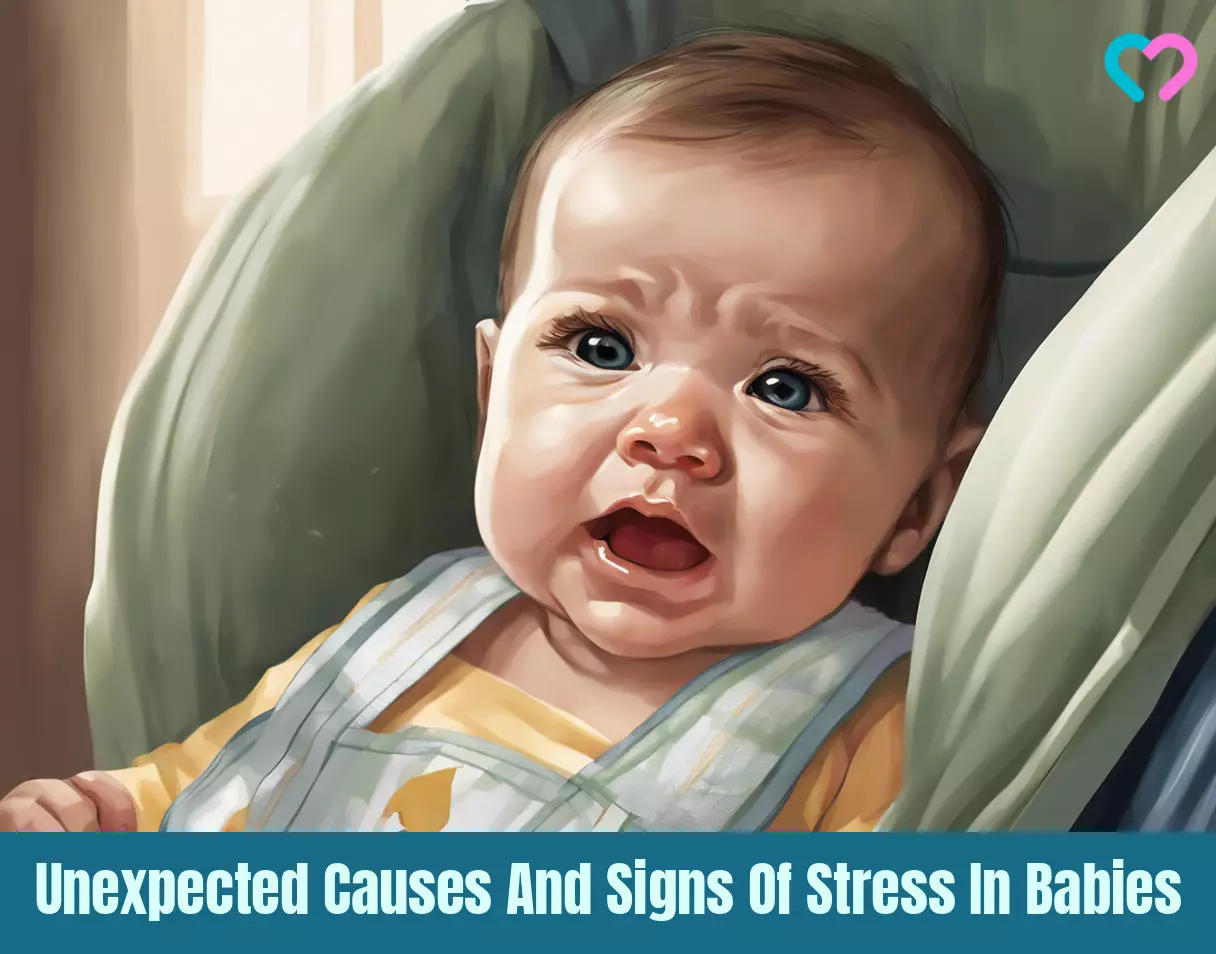
Image: Stable Diffusion/MomJunction Design Team
Discover the negative effects that toxic stressors could have on your little baby and ways to keep them away from the same, explained by a medical expert.
References
1. Linda Folden Palmer; Stress in Infancy; The natural child project
2. Early Brain Development and Health ; The Centers for Disease Control and Prevention
3. Sabine Seehagen, et al.; Stress impairs cognitive flexibility in infants; Proceedings of the National Academy of Sciences of the United States of America
4. Adverse childhood experiences and the lifelong consequences of trauma; American Association of Pediatrics
5. Stress and Children Ages 0-3; Partnerships for Action, Voices for Empowerment
6. Trauma and Children– newborns to two years; BetterHealth; Victoria State Government
7. Claire Lerner; Parents Under Stress: What It Means for Babies
8. Robert Winston and Rebecca Chicot; The importance of early bonding on the long-term mental health and resilience of children; The United States National Library of Medicine
9. Soothing a crying infant; child welfare; The united states Department of Health & Human Services
10. How to Calm a Fussy Baby: Tips for Parents & Caregivers; healthy children; The American Academy of Pediatrics
11. Fear of the bath: babies and toddlers; Raisingchidren.net.au
12. Fussy Babies; C.S Mott Children’s Hospital
13. Toxic stress exposure in childhood linked to risky behavior, adult disease; Yale News
14. Excessive Stress Disrupts the Architecture of the Developing Brain; Harvard University
Why Is Stress Dangerous For Babies?
Stress in babies can have long-lasting negative effects. Stress experienced during early childhood, particularly due to developmental trauma and neurodevelopmental factors, can have a significant impact on a baby’s brain development. Firstly, exposure to chronic stress negatively impacts the baby’s brain. Increased levels of the stress hormone- cortisol, during infancy can be associated with behavioral problems and stress-related disorders in adulthood. In addition to genetics, nutrition, and illnesses, the baby’s experience with the people around them also affects their brain development (2) (3).
However, the perception of stress may vary for each baby. Some may feel toxic stress from one incident, while other babies may perceive it as a minor problem (4).
How Do You Know If Your Baby Is Stressed?
It may not be easy to identify or understand when your baby is stressed. Though babies cannot verbally express what they are going through, their behavioral changes could indicate that there is something wrong. By noticing these signs early, parents can change routines, make the environment soothing, or offer comfort as needed. This helps babies feel safe and cared for.
You may notice the following signs and symptoms when your baby experiences stress (5) (6):
- Increased crying: Crying can be one of the first and most common reactions of a baby who is stressed. It is a signal to the caregiver that they are not feeling well or need something in normal circumstances. A baby who faces stress could cry more than usual. If you notice your baby crying uncontrollably, try to find out what is causing them stress.
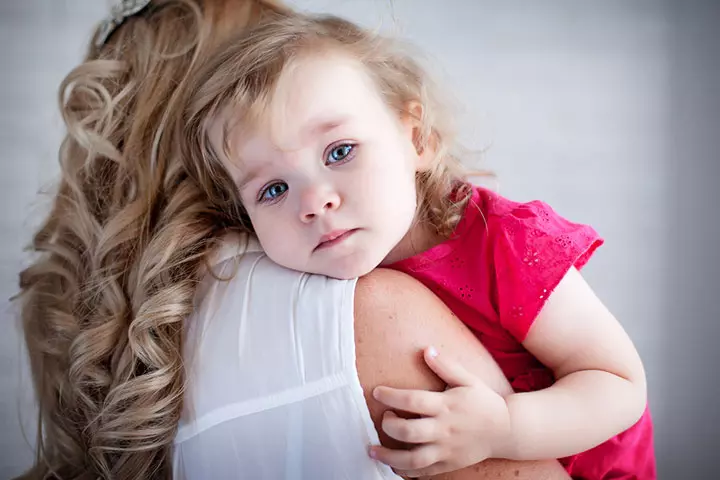
- Changes in sleep habits: Stress could interfere with a baby’s sleeping habits. They may stay awake more than usual and cry due to stress.
- No eye contact: Babies try to avoid eye contact when they are stressed. If your baby’s gaze was normal before, and now they avoid looking into your eyes, they may be stressed. In some cases, lack of eye contact may indicate autism spectrum disorders or visual impairment.
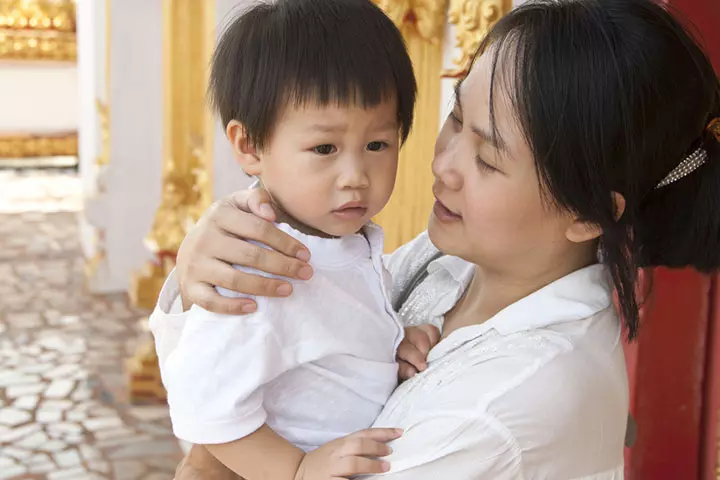
- Changes in eating habits: Stress may interfere with your baby’s eating habits. Some may tend to overeat, while others may experience a lack of appetite. Stress may also cause tummy trouble in infants, and you may notice signs of indigestion.
Babies may refuse to eat when they feel fearful and stressed. However, if your baby is not feeding, you should also look for any possible cause of illnesses or constipation. In later stages of infancy, especially when they transition from breastfeeding to eating solid foods, some babies may refuse the new foods because they may still want to breastfeed (5). - Looks without emotions: Babies may look inexpressive when they are in chronic stress. You could feel a lack of emotions on their face.
- An unfamiliar situation: A study conducted by a team of psychologists from Germany shows that infants become fussy, start crying, and signal parents to pick them up when they are left to play with strangers for a few minutes. This study demonstrates that infants had problems adapting to new situations when they are under stress (3).
Babies may refuse to eat when they feel fearful and stressed. However, if your baby is not feeding, you should also look for any possible cause of illnesses or constipation. In later stages of infancy, especially when they transition from breastfeeding to eating solid foods, some babies may refuse the new foods because they may still want to breastfeed (5).
A study conducted by a team of psychologists from Germany shows that infants become fussy, start crying, and signal parents to pick them up when they are left to play with strangers for a few minutes. This study demonstrates that infants had problems adapting to new situations when they are under stress (3).
What Causes Stress In Babies?
A baby’s stress can be due to emotional or physical reasons and emotional regulation is essential in helping babies cope with stress. Anything around them – what they see, hear, and feel – plays a vital role in determining their response. Maternal depression and maternal anxiety can also significantly impact a baby’s emotional state as they could be easily affected by the emotional changes of the primary caregiver and mother (7). They can also experience some level of stress from positive changes such as learning a new skill. However, stress is mostly linked to negative emotions or illnesses.
The following factors may cause stress in babies (1) (6):
- Physical discomfort: One of the main reasons for stress in babies is illnesses or pain. They can be affected by various physical ailments, from simple indigestion to severe disorders or disabilities.
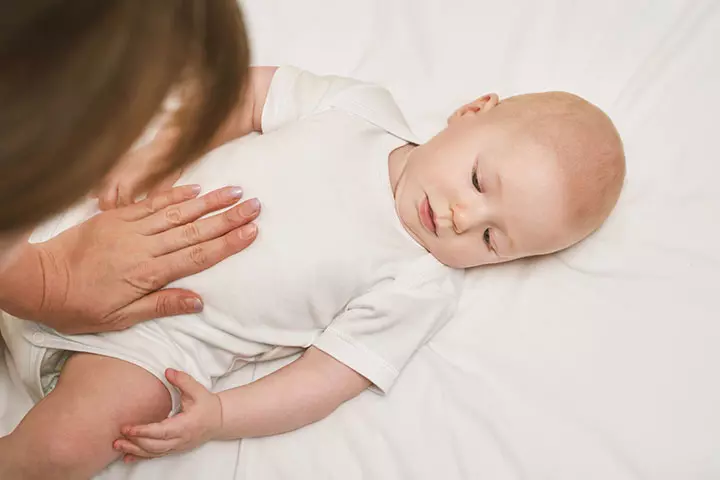
- Not getting enough attention: Babies who lack a strong bond with the caregiver could feel stressed. If a baby is left unattended or not acknowledged for a while, they may start crying due to stress. Babies may experience higher levels of stress if no one responds to their cry when they are hungry or after wetting or soiling the diaper. Therefore, maternal bonding or bonding with the caregiver is crucial for a baby’s emotional well-being and overall development.
- Separated from parent or caregiver: Being away from the parent or primary caregiver could create stress in babies, particularly those who have developed a secure attachment with their caregiver. They may panic and start crying when they are away from the primary caregiver for a while (3).
- Negligence of mother: Lack of attention and maternal sensitivity could also lead to stress in babies. Physical or emotional neglect from a mother may cause a high level of stress in infants.
- Environmental stress: Babies require a safe environment to develop properly. They may feel stressed in a new environment, especially without the comfort or presence of their caregiver. Loud and new sounds could also stress them out. Adversity, such as an argument or fight between siblings, parents, or other family members, could create stress in babies, and you may notice them crying in such scenarios.
- The caregiver or mother is stressed: An infant may sense the behavior and emotions of their caregiver, including maternal stress. They may become stressed when their caregiver is feeling the same. A recent post-COVID-19 pandemic survey has reported that over 50% of caregivers are experiencing stress. Anxiety, depression, and loneliness are other common issues that caregivers face. Unsurprisingly, single parent-household are struggling more than other households.

The mental health of caregivers
Source: Survey Shows Single-Parent Households with Young Children Bear the Brunt of COVID-Related Stress; The Georgetown University Center for Children and Families/ University of Oregon
Note: If you notice any signs or symptoms of stress in your baby, and feel that there are no psychological stressors, it is advised to contact their pediatrician to rule out any physical illnesses.
How To Prevent Stress In Babies?
Responsive parenting and parental sensitivity play an important role in promoting the emotional well-being of infants. It is essential to prevent stress in your baby since it may have an impact on their mental health and cognitive abilities in later life. Creating a loving bond with the baby is an effective way to make them feel less stressed (8).
Each baby has a different temperament, but sometimes, the nurturing touch of a parent or caregiver could be enough to reduce their stress (1).
The following tips may also help you to reduce your baby’s stress:
- Give them attention while feeding, whether you are breastfeeding or bottle-feeding, as it can positively impact parent-child interaction and help promote healthy bonding
- Offer gentle touches
- Do not expose the baby to your stress, as it can affect them
- Be playful with them and indulge in play therapy; play games that are appropriate for their age

- Babywearing, a parenting style where your baby is kept close to you with the help of a sling or pouch, can reduce stress.
- It’s important to avoid disrupting a baby’s sleep, as sleep disturbances can cause stress in infants. Creating a consistent daily routine helps babies feel secure and lowers anxiety.
- Respond to their cries; never leave them unattended
- Give gentle massages
 Quick tip
Quick tipWhen prevention fails, you may have to resort to measures that help calm the baby.
How Do You Calm A Stressed Baby?
If you notice that your baby is stressed, or does not stop crying, try to find out the reason behind it. Besides addressing the cause for stress, you can also try the following ways that may comfort your baby (9) (10):
- Swaddle (wrapping in the blanket) your baby
- Carry them and walk around
- Turn on music that they like
- Make them interact with siblings or pets
- Change diaper if it is wet or soiled
- Feed them if they are hungry
- Give a pacifier or help them find fingers
 Did you know?
Did you know?Brain development is not complete at birth and often depends on the environmental cues that the baby is exposed to after birth. It also relies on the development of self-regulation and social support. An infant’s brain can’t give high-quality self-stimulation, as it adjusts to what it sees, hears, and feels. Thus, loving and nurturing stimulation from a caregiver can be good for the baby’s brain development. Stimulation from electronic media cannot replace communication with people (4).
Frequently Asked Questions
1. Can stress in babies affect their social skills?
Chronic stress may affect a baby’s brain development. This can hamper their developmental milestones, including those associated with social skills. These effects may not surface immediately and may be evident as the child grows older (13).
2. Can stress in babies affect their motor development?
Since stress affects the baby’s brain, it may affect any aspect of their development, including motor development. However, consistent, predictable, and nurturing care can prevent poor outcomes (14).
3. What are some common misconceptions about stress in babies?
Misconceptions about infant stress include the belief that they can’t remember the trauma, newborns don’t feel pain, and fetuses can’t experience trauma. However, research shows early memories have long-term effects, newborns feel pain, and fetuses can experience stress that affects development (15).
Stress in babies can negatively affect their brain development. This may also trigger behavioral issues in childhood and stress-related disorders in adulthood. Lack of adequate attention and care, separation anxiety or separation from parents or caregivers, and physical illnesses can make a baby stressed. Babies also understand their surroundings and parental emotions and develop stress if they are worried or stressed. They may lack emotions on their faces and may not smile or cry even when stressed.
Infographic: Effective Strategies To Prevent Stress In Babies
Babies that are stressed out may experience various negative effects on their development, including difficulty sleeping and bonding. Parents must be aware of the signs of stress in their babies to take steps to prevent it. Therefore, read the infographic below to discover some useful strategies for reducing your baby’s stress.
Some thing wrong with infographic shortcode. please verify shortcode syntax
Community Experiences
Join the conversation and become a part of our nurturing community! Share your stories, experiences, and insights to connect with fellow parents.
Read full bio of Dr. Maymunah Yusuf Kadiri
Read full bio of Dr Bisny T. Joseph
Read full bio of Rohit Garoo
Read full bio of Shinta Liz Sunny








